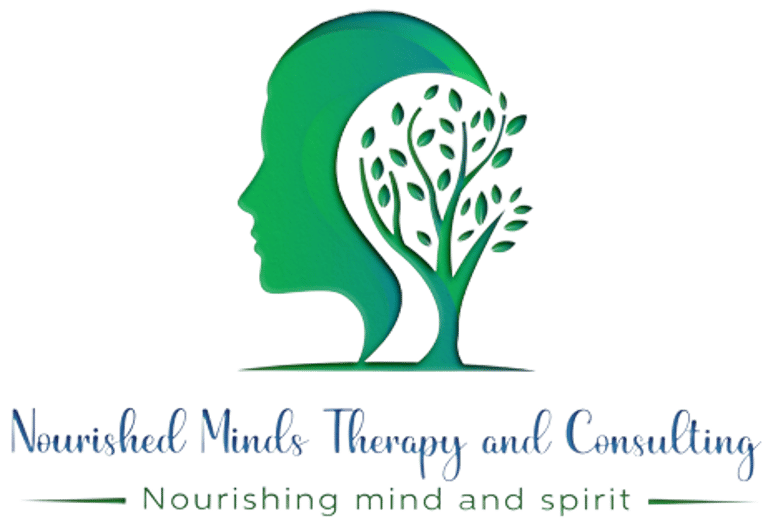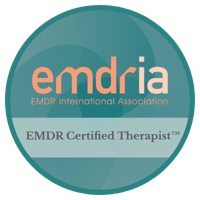Now scheduling EMDR Intensives!
PTSD and Complex PTSD
Post-Traumatic Stress Disorder (PTSD) and Complex Post-Traumatic Stress Disorder (C-PTSD) are mental health conditions that can develop after experiencing traumatic events. While they share some similarities, they also have distinct features that are important to recognize for effective treatment. This post will shed light on both conditions, their symptoms, and available treatments.
What is PTSD?
PTSD is a mental health condition triggered by experiencing or witnessing a traumatic event. This can include events such as natural disasters, serious accidents, terrorist acts, war/combat, or personal assaults.
Symptoms of PTSD
Intrusive Memories: Recurrent, unwanted distressing memories of the traumatic event. Flashbacks or reliving the traumatic event as if it were happening again.
Avoidance: Avoiding places, activities, or people that remind you of the traumatic event. Avoiding thoughts or feelings related to the trauma.
Negative Changes in Thinking and Mood: Negative thoughts about yourself, other people, or the world. Hopelessness about the future, memory problems, difficulty maintaining close relationships, and feeling detached from family and friends.
Changes in Physical and Emotional Reactions: Being easily startled or frightened, always being on guard for danger, self-destructive behavior, trouble sleeping, trouble concentrating, irritability, angry outbursts, or aggressive behavior.
What is Complex PTSD?
Complex PTSD (C-PTSD) results from prolonged or repeated trauma over months or years, often involving harm or abandonment by a caregiver or other interpersonal relationships. Examples include ongoing domestic violence, long-term child abuse, or chronic neglect.
Symptoms of C-PTSD
In addition to the symptoms of PTSD, C-PTSD includes additional symptoms that affect self-concept and interpersonal relationships:
Emotional Regulation Difficulties: Problems managing emotions, such as intense anger or sadness, and feeling emotionally numb.
Consciousness Alterations: Feeling detached from oneself, experiencing amnesia or dissociative episodes, and problems with concentration.
Negative Self-Perception: Deep feelings of shame, guilt, or worthlessness, and feeling fundamentally different from others.
Difficulty with Relationships: Problems maintaining relationships, feeling isolated, and difficulty trusting others.
Distorted Perceptions of the Abuser: Preoccupation with the relationship with the perpetrator, attributing total power to the perpetrator, or a desire for revenge.
Treatment Options
Both PTSD and C-PTSD can be effectively managed with the right treatment approaches. Here are some common treatment options:
Therapy
Cognitive-Behavioral Therapy (CBT): Helps individuals change negative thought patterns and behaviors associated with trauma.
Eye Movement Desensitization and Reprocessing (EMDR): A structured therapy that encourages the patient to briefly focus on the trauma memory while simultaneously experiencing bilateral stimulation (usually eye movements), which is associated with a reduction in the vividness and emotion associated with the trauma memories.
Dialectical Behavior Therapy (DBT): Especially useful for C-PTSD, DBT focuses on teaching coping skills to manage stress, regulate emotions, and improve relationships.
Trauma-Focused Therapy: Includes a variety of approaches that directly address the trauma.
Internal Family Systems: A non-pathologizing therapeutic approach that helps individuals understand and integrate conflicting “parts” of themselves, such as their thoughts, feelings, and reactions to achieve a greater sense of peace and regulation
Acceptance and Commitment Therapy (ACT): is a form of psychotherapy that encourages individuals to accept their thoughts and feelings rather than fighting or feeling guilty for them. ACT helps people commit to actions that align with their values, using mindfulness strategies to improve psychological flexibility and resilience.
Medication
Antidepressants: Such as selective serotonin reuptake inhibitors (SSRIs), can help manage symptoms of PTSD and C-PTSD.
Anti-Anxiety Medications: May be prescribed to help with severe anxiety or panic attacks.
Prazosin: Sometimes used to treat PTSD-related nightmares.
Self-Care and Support
Healthy Lifestyle: Regular movement (where possible), a balanced diet, and sufficient sleep are crucial for overall well-being.
Support Groups: Connecting with others who have experienced similar trauma can provide comfort and understanding.
Mindfulness and Relaxation Techniques: Practices such as meditation, yoga, and deep breathing can help manage stress.
If you or someone you know is struggling with symptoms of PTSD or C-PTSD, seek help from a mental health professional. Nourished Minds Therapy offers several empirically based treatment approaches that have been proven effective in relieving the debilitating symptoms of PTSD and C-PTSD. Visit our Therapeutic Approaches Page or Contact Me to find out how we can tailor a plan to support your mental wellness. Early intervention can lead to significant improvements in quality of life.







